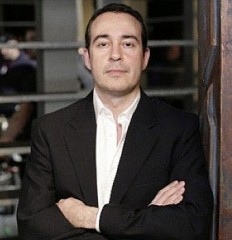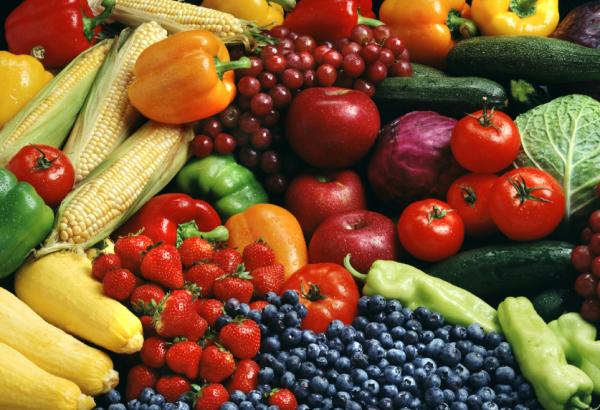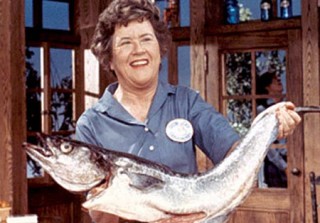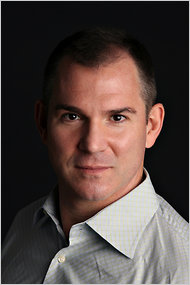Welcome back to WHR You Decide! 
We are pleased to announce our next special guest host, Culinary Artist Joe Mallozzi, who will join us on You Decide Sunday August 05, 2012 8pm Eastern time, 5pm Pacific time to discuss everyone’s favorite human interest topic, food, or more aptly put by an expert in such matters, the Culinary Arts!
All of you whom have followed Mr. Mallozzi’s blog over the years of know this man to be a creator of exquisite culinary delights. His posts are replete with images of his creations that make our mouths water! How many of us wish we could create such recipes in our very own kitchens to fill our palettes with the delightful morsels often pictured by Mr. Mallozzi on his weblog!
 While we are all thinking about the wonderful epicurean delicacies that Joe Mallozzi has created over the many years of his producing and writing Stargate, none can forget his other works of art including his wonderful new comic series “Dark Matter”, on Dark Horse Comics recently featured at San Diego Comic-Con after a successful premiere January 11, 2012.
While we are all thinking about the wonderful epicurean delicacies that Joe Mallozzi has created over the many years of his producing and writing Stargate, none can forget his other works of art including his wonderful new comic series “Dark Matter”, on Dark Horse Comics recently featured at San Diego Comic-Con after a successful premiere January 11, 2012.
Dark Matter is described as “A derelict ship floats in space, its troubled crew awakened from stasis with no memories of who they are or how they got on board. Their search for answers triggers the vessel’s deadly security system: a relentless android bent on their destruction. Facing threats at every turn, they have to work together to survive a voyage charged with vengeance, redemption, betrayals, and hidden secrets best left unknown!”
We look forward to discussing hidden “Dark Matter” secrets and other appetizing items during our exciting interview with legendary Stargate creator Joe Mallozzi this Sunday on You Decide!
Culinary Arts and Anthropology:
Several thousand years from now, when our civilization is studied by anthropologists, archeologists and all the other “ologists” doing their best to understand us, there will be a lot of collective head scratching. Our western civilization will make absolutely no sense to them. Think for a moment. We are a civilization that worships thin, taught, firm bodies, yet we eat like pigs and watch cooking shows as if we were worshiping food like a deity. Why?

If you are over 40, you will likely remember back when two out of three programs on TV were Westerns. The Western craze gave way to the spy/detective/cop show craze. Then there were the ubiquitous sitcoms and, of course, the plethora of variety shows. The most recent obsession among TV viewers seems to be “reality” programming, and that is where the cooking and food shows come in.
 For many years, cooking shows were relegated to the realm of educational or “public” television. Brief cooking demos have long been staple segments on network and local morning news shows. Considered a “niche market,” TV programmers believed that cooking shows appealed only to bored housewives looking for new recipes.
For many years, cooking shows were relegated to the realm of educational or “public” television. Brief cooking demos have long been staple segments on network and local morning news shows. Considered a “niche market,” TV programmers believed that cooking shows appealed only to bored housewives looking for new recipes.
That’s why, back in 1993, everybody thought the people behind the “TV Food Network” had lost their minds and were preparing to lose their shirts. A 24/7 cable network dedicated to nothing but food and cooking? Crazy!
Twenty-four hour news channels were fine. So were ’round the clock sports stations. Even cable outlets that played nothing but music videos were acceptable. But a whole network about nothing but food? Nah! Who’d watch that?
Older people shouldn’t eat health food, they need all the preservatives they can get.–Robert Orben
Part of the reason for the network’s unprecedented success may be a subtle – or not so subtle – change in focus. The original cooking shows like Julia Child’s cooking show and other such staples, have been supplanted by programming ¬about food, the philosophy apparently being not everybody cooks, but everybody eats. As a result, “reality” shows revolving around food – “Diners, Drive-Ins and Dives,” “Ace of Cakes,” “Chefs vs City,” “Unwrapped,” “The Best Thing I Ever Ate” and a host of others are stacking up big numbers. According to Bloomberg.com, Food Network’s prime-time ratings have more than doubled since 2004.
“Foodie” has even entered the lexicon as a legitimate word! According to the Urban Dictionary – not exactly Webster, I know, but it is a dictionary — a foodie is “A person that spends a keen amount of attention and energy on knowing the ingredients of food, the proper preparation of food, and finds great enjoyment in top-notch ingredients and exemplary preparation.”
And, actually, Merriam-Webster does have a definition of “foodie:” “a person having an avid interest in the latest food fads.” Back in the old days, we used to call such people “gourmands,” but I guess “foodie” is more fun.
Regardless of the popularity of the smorgasbord of shows centering on food and cooking, it doesn’t seem that they are having a great deal of impact on North American cooking habits. According to New York Times writer Michael Pollan, “the average American spends a mere 27 minutes a day on food preparation.” More time is being spent on eating out at restaurants, including quick drive thru burger places and precooked meals that can be quickly picked  up at the local supermarket. In fact, according to new research sponsored by EBLEX, the body which represents beef and lamb farmers in the U.K, nearly 60% of 18- to 25-year-olds are leaving home without the ability to cook five simple dishes.
up at the local supermarket. In fact, according to new research sponsored by EBLEX, the body which represents beef and lamb farmers in the U.K, nearly 60% of 18- to 25-year-olds are leaving home without the ability to cook five simple dishes.
From this comes the deathly prognosis that within a generation we will simply have forgotten how to cook, and will be up to our necks in cook-chill dishes. We will be like the Eloi in HG Wells’ The Time Machine: a childlike race bereft of culinary knowledge, dependent on the kitchen Morlocks far down below, the last holders of food skills, slaving away in the ready meal mines.
Kathleen Collins, in her book, “Watching What We Eat: The Evolution of Television Cooking Shows”, says, “Cooking shows have taught us, changed us and changed with us. At the beginning of the twenty-first century, they have evolved to satisfy our yearning for quality, affordable, environmentally and health conscious, easy to prepare yet sophisticated food. And while many viewers may not have the time to execute the lessons nor the money to afford the high-end ingredients or appliances used by cooking show hosts, these shows prevail because everyone eats, knows something about food, and can relate to the endeavor.”
Frank Bruni, who held the position of restaurant critic for the New York Times for 5 years, has his own opinion, “When many people turn on the television set, as opposed to picking up a book or doing something more interactive, they’re looking for a passive, mind-resting experience. They want something that doesn’t require close attention, the way a twisty plot might. Something akin to visual music. Something ambient, in a way”.
Ron James, a regular contributor to Yahoo Voices reasons, “These shows work – especially the food shows as opposed to the cooking shows – because they have borrowed major elements from America’s latest TV fad; reality. Reality TV actually goes back to Allen Funt and “Candid Camera.” People loved to watch real people caught in funny situations. Fast forward forty years or so to the era of “Survivor,” “American Idol,” “Dancing with the Stars,” “Fear Factor,” “Big Brother,” and dozens more. In the same way that you couldn’t turn on a TV in the ’50s without seeing a cowboy, nowadays you can’t seem to escape “reality” shows.”
The purveyors of  today’s culinary programming have taken ingredients from all of these shows and blended them into a recipe for success. Famous people or, at least, flashy, charismatic people; high tech settings or exotic locales; a little drama, a little comedy and, most importantly, competition.
today’s culinary programming have taken ingredients from all of these shows and blended them into a recipe for success. Famous people or, at least, flashy, charismatic people; high tech settings or exotic locales; a little drama, a little comedy and, most importantly, competition.
“Iron Chef America,” where competitors “do battle” in a “Kitchen Stadium”! “Diners, Drive-Ins, and Dives,” where a larger-than-life host takes people to fabulously fun eateries that just might be located in their hometowns. “Chopped,” “Food Network Challenge,” or “Dinner: Impossible,” where chefs face seemingly insurmountable culinary tasks, taking the viewers along for the ride as they navigate through the twists and turns in an effort to come out on top. In short, cooking has become something of a spectator sport.
Veteran food-marketing researcher, Harry Balzer argues that “we’re basically cheap and lazy. And besides, [cooking] skills are already lost. Who is going to teach the next generation to cook? I don’t see it. We’re all looking for someone else to cook for us. The next American cook is going to be the supermarket. Takeout from the supermarket, that’s the future. All we need now is the drive-through supermarket.”
 Thanks to Kenn for final staging of the audio and images in this news article and thanks to you for stopping by WormholeRiders News Agency!!
Thanks to Kenn for final staging of the audio and images in this news article and thanks to you for stopping by WormholeRiders News Agency!!
We look forward to seeing you for our exclusive interview with Joe Mallozzi this Sunday 5 PM PST 8 PM EST!
Please feel free to leave a comment here, click an icon below to share this interview with your friends, or you can visit and follow me on Twitter by clicking on my avatar to the right.
Regards,
Thank you.
ArcticGoddess1 (Patricia)

